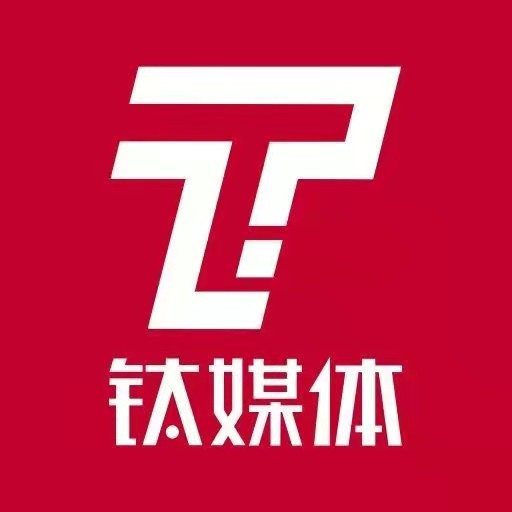TMTPOST -- China announced on Tuesday countermeasures against new U.S. tariffs while hinting room for target actions as the Trump administration is igniting new trade war.

In response to the latest U.S. unilateral tariff hike that seriously violates the rules of the World Trade Organization ( WTO ) , China will implement additional tariffs on certain U.S. products starting from February 10, or next Monday, the Customs Tariff Commission of the State Council said in a statement on Tuesday. An additional 15% tariff will be imposed on imported coal and liquefied natural gas originating from the United States, and crude oil, agricultural machinery, automobiles with large displacement, and pickup trucks will be subject to additional tariffs of 10%, per the statement.
For the targeted U.S. goods, corresponding tariffs will be added to the current tariff rates. Current bonded policies as well as tax reduction and exemption policies will not change, and the latest tariffs to be imposed will not be reduced or exempted, according to a statement. It said the upcoming tariffs are in accordance with the basic principles of international law, and with Chinese laws and regulations such as the tariff law, the foreign trade law and the customs law.
China has filed a complaint with the WTO's dispute settlement mechanism against the U.S. decision to impose an additional 10% tariff on goods from China, the Ministry of Commerce ( MOFCOM ) announced on Tuesday. A spokesperson with the ministry said the move is to defend China's legitimate rights and interests as the U.S. move severely undermines the rules-based multilateral trading system, erodes the foundation of China-U.S. economic and trade cooperation, and disrupts the stability of global industrial and supply chains.
China also expanded its export controls on strategic minerals. The export controls on items related to tungsten, tellurium, bismuth, molybdenum and indium went into effect on Tuesday, according to a statement jointly issued by the MOFCOM and the General Administration of Customs. Many of these minerals are designated as critical minerals by the U.S. Geological Survey, meaning they are essential to U.S. economic or national security that have supply chains vulnerable to disruption.
The decision to include these items on the export control list reflects China's holistic approach to balancing development and security, an MOFCOM spokesperson said. China believes the move can better protect its national security and interests, fulfill non-proliferation and other international obligations as well as safeguard the security and stability of global industrial and supply chains, according to the spokesperson.
The United States has repeatedly put unilateralism above multilateralism, incurring strong condemnation from the majority of the WTO members. "China firmly opposes the U.S. actions, and urges the U.S. side to immediately rectify its wrongdoings," the spokesperson said.
China's market regulator on Tuesday said that it has launched an investigation into Google for suspected violation of the country's anti-monopoly law. Though not mentioning the tariffs, the State Administration for Market Regulation released the move minutes after the new U.S. tariffs entered effect on Tuesday. It said the probe was opened in accordance with the law.
With a slew of countermeasures, China hit back at the U.S. tariffs timely and accurately, Yuyuan Tantian, a social media account affiliated with China Central Television ( CCTV ) , cited Chinese experts. The counterattack demonstrates China's strong opposition to the U.S. unilateralism and hegemonism as well as firm position and attitude to safeguard its legitimate rights and interests, but also leaves sufficient means for the two sides to negotiate and resolve issues on the basis of equality and mutual respect, Yuyuan Tantian commented. It noted the 10% or 15% additional tariffs on U.S. goods left enough room for China ’ s future slap. In the coming days, China may adjust retaliation actions depending on U.S. further move, Yuyuan Tantian quoted Cui Fan, a professor of the University of International Business and Economics.
Wall Street felt the first volleys in the latest U.S.-China trade war made clear that Beijing is taking a more cautious approach than during Donald Trump ’ s first presidential term.
"A full-blown tariff war is not in China ’ s interest," said Larry Hu, head of China economics at Macquarie Group Ltd. "Instead, China is likely to respond to tariffs mainly through domestic stimulus."
China's retaliation seems measured, while Trump ’ s 10% tariff is also thus far more measured than the 60% he promised initially, noted Xin-Yao Ng, an investment director at abrdn Plc in Singapore. Ng expected very intense trade discussions with more tariff threats, and thus repeated pressure on Chinese stocks.
"It suggests that China is wary of pushing back too hard against Trump's latest tariffs and is leaving the door open for future negotiations," said Lee Hardman, senior currency analyst at MUFG.
White House has suggested Trump will speak with Chinese President Xi Jinping soon, the first talks between two leaders since Trump took office.White House Press Secretary Karoline Leavitt said Monday Trump could have a phone call will Xi "in the next couple of days." She also told Fox News that there ’ s a plan for Trump to speak with Xi "in the next 24 hours." "We are not going to allow this country to again be a dumping ground for illegal Chinese fentanyl that is killing tens of thousands of Americans every single year," the White House spokesperson said.
